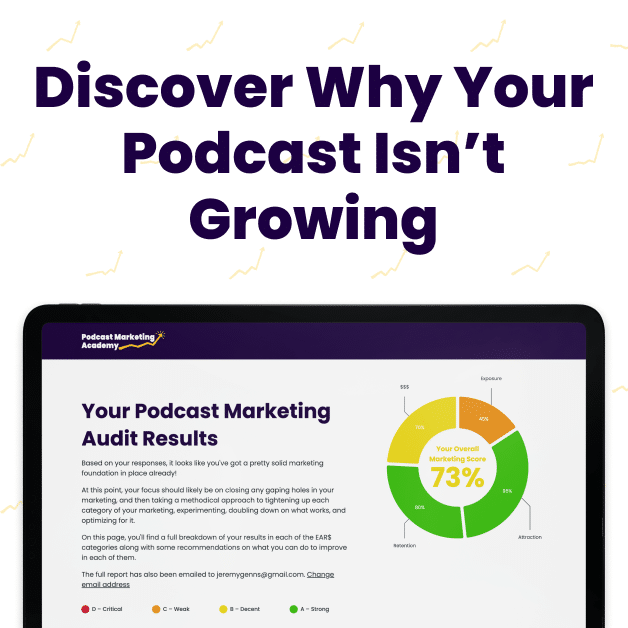Not long ago, I hit a wall.
It’s not surprising, really, in hindsight.
At the time, I was publishing two newsletters, a long-form Twitter thread, and four Quick Podcast Tips every week.
From a content creation perspective alone it was a lot.
But that was just the start.
On top of the content creation, I was also prepping for a Podcast Marketing Academy launch, managing the existing PMA Membership, developing a handful of talks and presentations, working with several consulting clients, guesting on podcasts, networking, and a whole lot more.
Oh, and let’s not forget trying to maintain a relationship with my partner Kelly, connect at least semi-regularly with friends and family, and do all the other stuff that makes life worth living.
It was clear, however, that for me, at this point, work was the clear priority, at the growing expense of everything else.
Not least of all, my health.
As a meticulous time-tracker, I should have seen it coming.
A month straight working 60+ hour weeks.
Two months of 50+.
When I looked back through more than four years of time-tracking data, I found only two (out of 225 total) other weeks where I had ever topped 60 hours.
Then, in one month, I tripled my total.
The work was far from drudgery. In fact, I loved almost every minute of it.
I love the process of uncovering ideas through writing, the orchestration of launches, the community I’ve cultivated, clients I work with, and more.
That’s exactly what made it dangerous.
And it’s probably why I convinced myself I could keep it up.
But as I’d experienced once, years before, eventually burnout always catches up with you.
Shortly after the PMA launch wrapped up I went to bed one night, exhausted… and yet five hours later, I was still unable to sleep.
Eventually, I got up, did some work (go figure), and finally fell asleep at 5 am.
Three hours later my body woke me up, right on schedule for my Saturday morning newsletter writing session, which I dutifully obliged.
But the sleepless nights continued.
First two, then three, then four.
Then came the stomach bug, fever, and sheer, utter exhaustion with no way to relieve it.
Finally, after a week, it relented, and I was able to crawl back, intact but humbled, and devoid of any trace of the momentum I’d spent months building.
The momentum that would now take months to rebuild.
The momentum that could have been preserved indefinitely had I dialled things back to a sustainable pace earlier.
The great irony of the situation was that a couple months earlier, I’d invited my friend and high-performance coach Claudia into the PMA community to do a guest expert workshop on burnout.
During the call, she walked us through her burnout risk assessment quiz to see where we were currently at.
To my satisfaction, I scored well.
In hindsight, however, I wonder if that only emboldened me to keep taking on more.
Now don’t get me wrong: I absolutely believe that you have to work harder than most people are willing to work in order to break through as a podcast creator.
Making it as a creator of any kind is one of the single most difficult career paths in existence.
Yes, there’s an element of working smarter, leveraging systems, automation, tools, and outsourcing. But when it comes down to it, there’s just a lot of work that needs to be done, and—at least until you have a significant budget—much of it can only be done by the host.
If you’re lucky, you, like me, find the majority of that work fun and energizing.
In fact, I believe that’s a prerequisite for any type of creative success.
But it also presents a trap.
Because when the work is fun and energizing it becomes hard to see exactly where your limits are.
It’s even harder when the plan is working. When the work you’re putting in is leading to your desired outcomes.
And so we face a kind of paradox:
As important as it is to uncover the ingredients of the show that make you want to spend every waking hour on it (and plenty of dreaming hours as well), it’s equally important to restrain yourself from actually doing so.
Because if we want to succeed, we’re going to have to keep this work up for years at a time.
To reach our true creative potential, decades, if we ever get there at all.
If we want to make it that long, we need to craft our shows and our creative practices in a way that optimizes for longevity over short-term results.
Is that how you’ve optimized yours?





